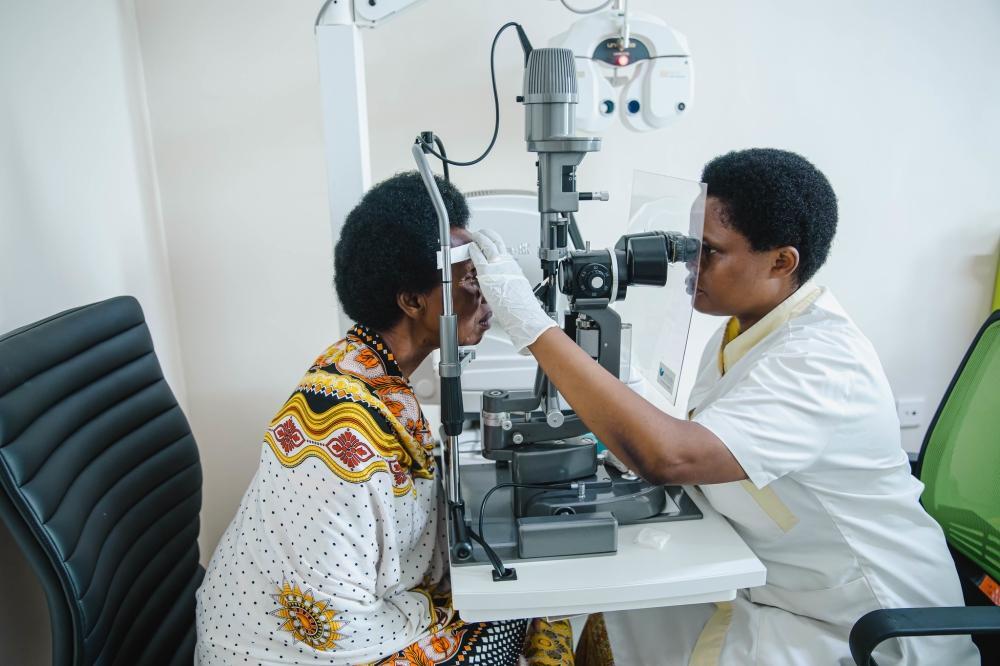Africa-Press – Rwanda. The Rwanda Private Medical Facilities Association (RPMFA) has called for a more efficient and accountable system for setting and reviewing medical tariffs, arguing that the current mechanism causes long delays and hampers the ability of private healthcare providers to deliver quality services.
Christian Ntakirutimana, Executive Secretary of RPMFA, told The New Times that the healthcare services bill currently under review by Parliament should clearly define how medical tariffs are set and revised.
He observed that the current entity responsible for setting tariffs — the National Health Insurance Council — has failed to deliver timely updates.
Tariffs, he said, have remained unchanged since 2017, despite significant increases in operational costs, including salaries for medical personnel and products.
Delaying updates to medical tariffs for eight years is untenable, especially as the value of the US dollar continues to rise and inflation drives up the cost of imported medical equipment and drugs, he argued.
He proposed that the law should clearly mandate that the Ministry of Health is responsible for setting medical tariffs and reviewing them within a specific timeframe, as well as provide for what happens if such a period is not respected.
Without such provisions, he warned, the healthcare system risks stagnation, particularly in the private sector.
“The current legislation doesn’t specify when tariffs should be reviewed or what happens if they are not,” Ntakirutimana said, arguing that if prices for goods and services—including insurance premiums—have risen, medical tariffs should not be an exception.
Ensuring accountability, timely tariff adjustments
Ntakirutimana argued that medical tariffs should be adjusted accordingly, exposing gaps in the current system which doesn’t hold anyone accountable when tariff reviews are delayed.
“If the law mandates a review every year, but two, three, or even five years pass without action, what should private facilities do to survive?” he asked.
“There should be a provision allowing us, as private providers, to propose tariff revisions ourselves—based on expert assessments—and then submit them to the Ministry of Health for approval and verifying whether those proposed tariffs are fair to patients and not exploitative,” he said.
A questionable system
Currently, the National Health Insurance Council is mandated, among other responsibilities, to set medical tariffs.
The council supervises health insurance activities – according to the 2015 law governing the organisation, functioning and management of health insurance schemes in Rwanda.
Its specific responsibilities include to advocate for health insurance entities, and to set prices or tariffs for services provided by insurers.
Private facilities argue that the council’s structure prioritises the interests of health insurance providers, who are incentivised to keep costs low.
Moreover, tariff revisions are supposed to take place at the same time for both public and private facilities, despite the fact that the former benefit from government support—such as building expenses, equipment purchases, and salary payments—that private ones do not receive.
Regarding composition, the council comprises nine members. They are a representative of the ministry in charge of finance, as its Chairperson; a representative of the Ministry in charge of health, as Vice Chairperson; a representative of the public organ in charge of development promotion, a representative of the public organ in charge of social security; a representative of the Association of Health Insurers; a representative of Rwanda Health Care Federation; a representative of the consumers’ association; a representative of Rwanda Private Medical Facilities Association; and a representative of private health posts or private dispensaries.
Health ministry response
The Minister of Health Dr. Sabin Nsanzimana told The New Times that the idea of allowing private health facilities to set their own tariffs could lead to market disorder.
“A seller should not set prices unilaterally, without input from patients, insurers, the Ministry of Health, and drug suppliers,” he said, pointing out that’s why the government established the council, which brings together all key stakeholders.
He said that under new health reforms — approved by the Cabinet in January — medical tariffs will be reviewed every two years, a move aimed at addressing some of the concerns raised by private facilities.
Still, questions remain about how this new policy will be enforced. For example, according to RPMFA, in 2017 it was stated that tariffs would be reviewed after one year, but no revision occurred in 2018—with the latest revision being approved by the Cabinet in January 2025.
Private health providers argue that without a clear, enforceable framework outlining when and how tariff reviews should occur, they will continue to face operational and financial challenges. They hope the new legislation will provide that clarity.
Rising costs, outdated tariffs
Data from RPMFA highlights how stagnant tariffs contrast with rising healthcare costs. For instance, the average salary of a senior specialist doctor was Rwf1.5 million in 2017, and it doubled to Rwf3 million in 2023; while that of a registered nurse rose by 40 per cent, from Rwf250,000 to Rwf350,000.
A minicap hemoglobin saw its price more than triple to Rwf600,000 in 2023, from 189,600 in 2017, implying a more than two-fold increase. This medical equipment is designed for examining hemoglobin – the protein contained in red blood cells that is responsible for carrying oxygen from lungs to tissues and organs in the human body.
Other equipment whose prices went up include a Minividas Immuno analyser (fully automated) – used for analysing antibodies and antigens in blood samples – whose cost rose by 38.5 per cent to Rwf14.5 million in 2023, up from Rwf11 million in 2017.
For More News And Analysis About Rwanda Follow Africa-Press






